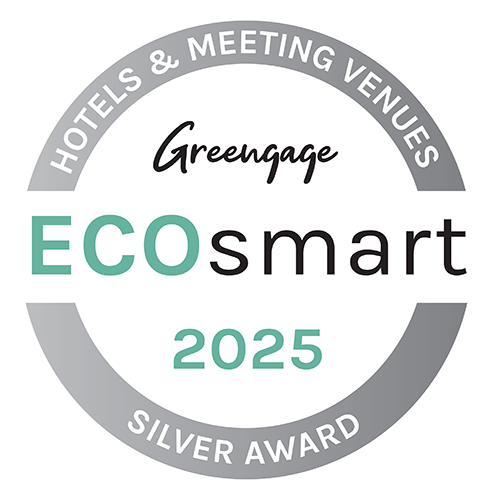What were the learnings from Chelsea’ FC’s first ‘real’ hybrid event?
As all of us in the event industry know, Covid-19 restrictions have put ‘hybrid events’ firmly in the spotlight as an of alternative to live events that can take place while restrictions remain in place. But although hybrid events existed before Covid, few of us had experiences of them, and until recently hybrid events with a significant ‘live’ audience haven’t been able to take place. As a result, it has been difficult to test successful formulas for organising larger hybrid events and to assess the value they can really deliver. But on 25th May, our ‘ReConnect – Power of People’ hybrid event gave us our first real chance to start doing this, and equip us with the knowledge required as we likely embark on creating more hybrid events in the future for our clients.
ReConnect comprised of a series of panel discussions with industry leaders – chaired by Conference News editor Martin Fullard – debating the core issues covering how our £84bn sector can successfully emerge from Covid-19. There was a live audience of 50 and an online audience of 100, who engaged with the debates and participated in a range of interactive polls that identified industry insights. Here is a round-up of our key learnings from our first hybrid event, and what we think the future holds.
Make sure you have the the right technology
Whether you are a venue or an event client, remember that technology is the first thing you need to get right. If you do not have the tech capacity, the smooth running of your event is at risk. This means getting to grips with everything from the increased bandwidth and AV required, to systems that ensure harmony between the live and digital elements of the event. Although I have 20 years-experience in the industry, when we started developing ReConnect, I realised I needed to expand my technology skillset. Luckily, we have excellent audio visual suppliers in Peachy Productions who were able to educate us and ensure we were ready. But I would urge anybody who hasn’t organised a hybrid event before to bear in mind that the technology required is different, and you may need help.
Allow more time for planning
A hybrid event naturally requires more strategic planning as you are essentially organising two events in one – both live and digital. There are also of course, still Covid related restrictions in place that have an impact on event organisation that need to be managed. Restrictions meant we had to develop a lot of ReConnect whilst working at a distance with colleagues, suppliers and speakers. We couldn’t get everybody in the same space to share ideas and discuss set up, and rehearsal time was limited due to restricted numbers of people being allowed onsite. We all had to be super organised with call schedules and ‘to do lists’ that had to be stuck to. Overall, we spent more time organsing ReConnect, than we would have organising a traditional live event of a similar size.
Knowledge of hybrid is key
It sounds simple, but it will be imperative for our team to be knowledgeable about all aspects of hybrid from now on. From technology to programme creation, we must be ready to answer questions on key areas that will give clients the confidence they need to proceed. As Edward Poland, Director of Hire Space said at ReConnect, ‘we don’t understand the true value of hybrid yet’ – this goes for clients as well. Hybrid is a new concept for most of them, and they will likely need a bit of hand holding and reassurance that their event will work before giving the greenlight. This is where expert knowledge will be really valuable.
Consider how you can engage both live and digital audiences
When planning the ReConnect programme, we had to give a lot of thought to how we would engage both the live and digital audiences. For example, how could we stop the online audience from switching off, without alienating the live audience with too many interactive features. For ReConnect, we decided that poll questions would be a great way for keeping both audiences equally involved in the debate. But what works for different events will depend on the content and what needs to be achieved.
What could the future hold for hybrid?
Taking ReConnect as a case study we believe it was highly well received, with excellent levels of engagement from both live and online audiences. We believe we achieved our objectives of helping to reconnect the industry, with debates that forged new ideas around the sector rebounding. So, for us, hybrid events work. 82% of the audience also thought there would be continued demand for hybrid events even once restrictions have been lifted, indicating people think they can be successful.
What seems most likely is that from now on, hybrid events will be an important part of the event industry landscape. As Martin Fullard said, ‘in 10-years-time they will probably just be called ‘events’ – not separated by the words ‘live’ and ‘hybrid’’. Building on his point about the ‘value’ of hybrid, Hire Space’s Edward Poland said he thought ‘we need to look at virtual to make the power of the live experience even more powerful’. What’s for sure is that hybrid is here to stay, and we all need to be ready for it.
Lucy Adamson is Meeting & Events Manager at Chelsea Football Club





